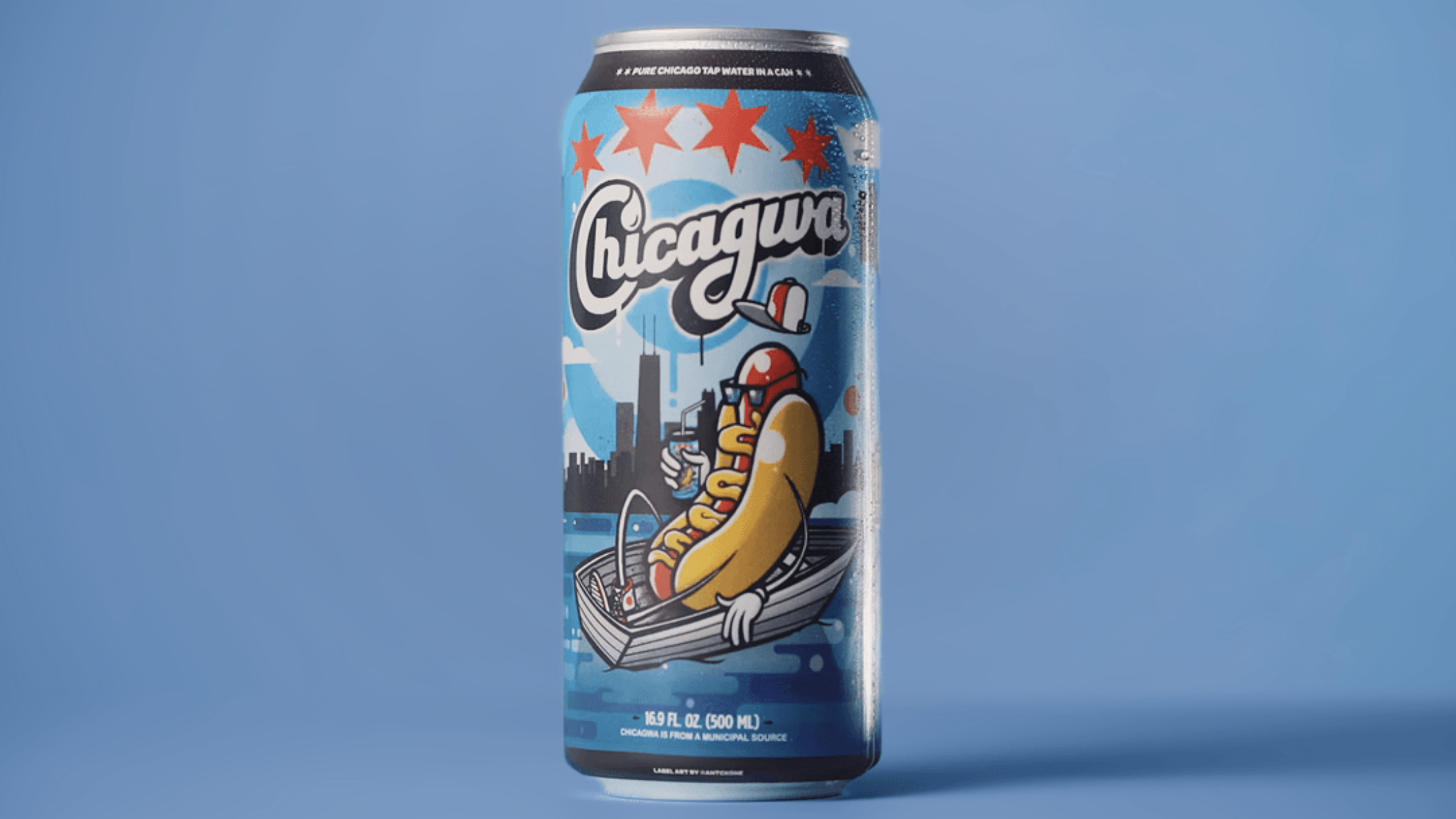Flashy Marketing Won't Fix The Water Crisis
This Chicago summer drink promotion is the wrong way to engage in the water conversation.
This summer, there's a new refreshing packaged drink in town, at least in my town of Chicago. The labels are colorful and flashy, the marketing campaigns look like they were created by social media influencers, and the name is, well, unique. It's called Chicagwa. It's canned water, and it's entirely missing the point.
What is Chicagwa?
I'll let the statement that I received from Chicago's Department of Water Management speak for itself:
Chicagwa, a new branding campaign from the City of Chicago, seeks to bring awareness to Chicago's proximity to – and rich history with – one of the largest bodies of fresh water in the world. The name Chicagwa combines the words "Chicago" and "water" to create a drinking water brand that also highlights the nearly 750 million gallons of water that the Chicago Department of Water Management processes every day. Additionally, the name references both the Spanish word for water and the Miami-Illinois word "shikaakwa" from which the City's name is derived.
TL;DR: it's Chicago tap water in a can. The water was canned by Chicago-based Great Central Brewing Company and comes in six different cans, each designed by a different local artist.
"You don't need fancy bottled water from Fiji or a Scandinavian glacier – not when the Department of Water Management carefully processes and purifies our drinking water so it is good straight from the tap," a statement from representatives of the Department of Water Management reads. "The campaign amplifies how Lake Michigan is our past, present, and future. We must do what we can to preserve the resource so that residents can stay 'Chidrated' for years to come."
Nowhere in the responses to my questions did the city mention why Lake Michigan suddenly needed this positive PR spin. Did the lake tweet something bad I didn't see? I can only assume the campaign aims to gain cool points for Chicago Mayor Lori Lightfoot as she prepares for her re-election campaign. But in the end, Chicagwa was a missed opportunity to raise awareness and, I don't know, actually do something to make a city's drinking water more accessible to everyone.
How Chicagwa misses the mark
When I asked the city how they were working to address the impact of lead lines on the city's drinking water, they sent back this incredibly PR response:
The Department of Water Management is working closely with City Hall to develop a comprehensive, sustainable and equitable program which leverages the historic investment in infrastructure modernization to address this citywide legacy issue.
Chicagwa's website explains in depth how the water is pulled from Lake Michigan and purified. The description, however, seems to skim over the part where that purified water must actually be sent through pipes to people's faucets and the obstacles it faces along the way. Chicagwa could have been an awareness campaign for the city to own its shit, something along the lines of: "Yes, we are aware of the lead issues, so we're canning this water before it hits the pipes, and we'll hand it out for free while we figure it out."
These cans of water in Chicago aren't even being used to support the city's population that might not have access to a running tap—yes, they're free, but they're being stocked in places like restaurants and markets that unhoused people are unlikely to patronize. One of the photos on Chicagwa's Instagram page shows Chicago Police Department officers enjoying the stuff, if that gives you an idea of the target demographic.
I would have even bought Chicagwa as a conservation campaign: our lake is so amazing, so let's not pollute it, let's clean up the beaches, let's make sure drinking water doesn't become a limited resource! Instead, the site's "What It Means To Us" page talks about how "water is our future," explaining, "While other water sources are drying up, we're snuggled up next to a giant freshwater lake that isn't going anywhere. It has kept us hydrated since the beginning, and it's big enough to keep us and our neighboring suburban friends Chidrated for pretty much always."
The city is essentially admitting that selling canned water is one big brag about how we'll be able to be hydrated forever. It's messaging that spits in the face of Chicago's Midwestern neighbors over in Flint, Michigan, where the water crisis has been ongoing since 2014.
Access to safe-to-drink and even safe-to-touch water is a continuing global crisis. According to Water.org, 1 in 10 people lack access to safe water. I'm all for novelty items, for praise of Lake Michigan, even for exploring different vessels in which to provide water to others, beyond plastic bottles. But to do so with insensitive messaging around an issue that affects so many is not only a missed opportunity, but a pretty heinous act.
Organizations like Water.org, the United States Water Alliance, the Clean Water Fund, and many many more are working to get water to everyone and educating people on how access to clean water and preserving our water supply fits into the larger fight in the global climate crisis. Partnering with any one of them on a project about Lake Michigan (and anything else to do with the water supply) would be a great step for the city to show it cares. Until then, Chicagwa will remain an empty, confusing PR stunt.
